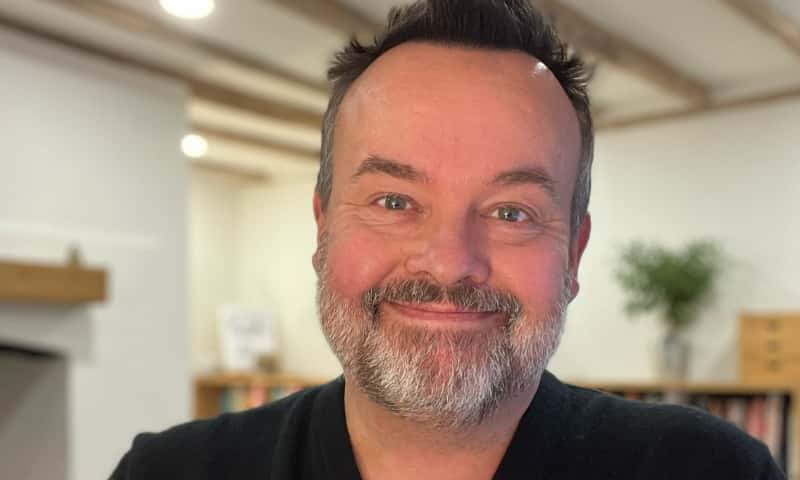“No one ever made a decision because of a number. They need a story.”
Daniel Kahneman, recipient of the Nobel Prize for Economics
This page lists the core books, papers and websites I reference in my podcast and work. If you want to dig even deeper, start here…
Self-Experimentation
- The Blind-Spot Test
A simple demonstration of the brain’s ability to effortlessly simulate something that isn’t there.
Books
I receive a commission on books bought via these links.
- Bergen, B (2012). Louder Than Words
Fascinating psychology, linguistics and cognitive science. Also funnier than you might expect. - Breuning, L. G. (2015). Habits of a Happy Brain
Great read on neurochemistry of your brain. - Boyd, Brian (2009). On The Origin Of Stories
In depth thesis on stories as an evolutionary adaptation. - Heath, Chip & Dan, (1993). Made To Stick
In the epilogue, they describe a Stanford Class exercise that finds stories 12 times more memorable than statistics. - Geary, J. (2011). I Is An Other
Where we learn just how pervasive metaphor is … and how deeply it affects our thinking. - Gerrig, R. J. (1993). Experiencing narrative worlds
On the psychological activities of reading. Yale University Press. - Lakoff, George & Johnson, M. (1980/2003). Metaphors We Live By
How metaphors shape our thinking and actions. - Lewis, Michael. (2016). The Undoing Project
Fascinating and accessible background into the birth of heuristics, biases and behavioural economics. - McAdams, D. P. (1993). The stories we live by: Personal myths and the making of the self. Guildford press.
Goes into the internal stories we tell and the effect of these on mental health. - Peterson, Jordan B. Maps of meaning: The architecture of belief. Psychology Press, 1999.
Tough but fascinating read on how stories provide motivation for action. - Storr, Will. The Science of Storytelling: Why Stories Make Us Human and How to Tell Them Better. Abrams, 2020.
This is a wonderful, accessible book. Highly recommended. - Wilson, Timothy. Strangers To Ourselves.
Explains how the adaptive unconscious is the spin doctor that creates reality. Human’s take in 11,000,000 pieces of information a second (p24).
Papers and articles
Some of these papers can be found free online via Google Scholar, others require subscriptions to journals or aggregation services.
- Bargh, J. A., & Pietromonaco, P. (1982). Automatic information processing and social perception: the influence of trait information presented outside of conscious awareness on impression formation. Journal of Personality and Social psychology, 43(3), 437.
Even unconscious cues will affect the way that subsequent conscious information is perceived. (The story your prospect tells about you will affect how they perceive your offer.) - Britton, B. K., Graesser, A. C., Glynn, S. M., Hamilton, T., & Penland, M. (1983). Discourse Processes, 6, 39–57.
Stories get more attention than fact. This study asked participants to read, but press a button when a certain tone sounded. Reaction time was significantly greater when they were reading a story as opposed to factual information, and the result was replicated over many scenarios. Stories engage us at a deeper level. - Christensen, Clay. Marketing Malpractice: The Cause and the Cure.
“With few exceptions, every job people need or want to do has a social, a functional, and an emotional dimension. If marketers understand each of these dimensions, then they can design a product that’s precisely targeted to the job. In other words, the job, not the customer, is the fundamental unit of analysis for a marketer who hopes to develop products that customers will buy.” - Damasio, Antonio, One example of Damasio’s work on the Somatic Marker Hypothesis, which privileges emotion over logic in human decision-making. Indeed, patients with damaged brains may function fine in many respects, but without access to emotion they lose their ability to make decisions.
- Feldman Barrett, Lisa. How Emotions Are Made: The Secret Life of the Brain
A deep and fascinating look at the science and study of emotion. - Fisher, Walter R. “Narration as a human communication paradigm: The case of public moral argument.”
Communications Monographs 51, no. 1 (1984): 1-22.
Advanced the idea of the Narrative Paradigm … that we experience life as a story. - Graesser, A. C., Singer, M., Trabasso, T. (1994). Constructing Inferences During Narrative Text Comprehension. __Psychological Review__, 101, 371–395.
Subjects remember about 50% more when information is relayed in a story. Other studies put this effect as high as 6x. - Keenan, J.M., Baillet, S.D., & Brown, P. (1987). The effect of causal cohesion on comprehension and memory. __Journal of Verbal Learning and Verbal Behavior__, 23, 115–126.
Recall is best if the audience has to make some inferences about the story. Again, it’s not to easy and not too hard. Audiences ‘want’ to work! - Kim, S-i. (1999). Causal bridging inference: A cause of story interestingness. __British Journal of Psychology__, 90, 57–71.
This study shows that well-designed stories keep audiences interested by requiring a moderate level of cognitive work/reading between the lines. Not too little, not too much. (Hear the podcast I did on this.) - Lauren J. Silbert, Christopher J. Honey, Erez Simony, David Poeppel, Uri Hasson, “Coupled neural systems underlie the production and comprehension of naturalistic narrative speech”
We ‘mindmeld‘ with others when we share stories. - Moseley, J. B., O’malley, K., Petersen, N. J., Menke, T. J., Brody, B. A., Kuykendall, D. H., … & Wray, N. P. (2002). A controlled trial of arthroscopic surgery for osteoarthritis of the knee. New England Journal of Medicine, 347(2), 81-88.
In a controlled trial of 165 patients, those who believed that they’d had surgery (complete with real scar) experienced the same benefits as those who had actually had surgery. - Speer, Nicole K., Jeremy R. Reynolds, Khena M. Swallow, and Jeffrey M. Zacks. “Reading stories activates neural representations of visual and motor experiences.” Psychological science 20, no. 8 (2009): 989-999.
Stories that contain physical actions trigger our brains to mimic those actions, even though we don’t move. “Different brain regions track different aspects of a story, such as a character’s physical location or current goals. Some of these regions mirror those involved when people perform, imagine, or observe similar real-world activities. These results support the view that readers understand a story by simulating the events in the story world and updating their simulation when features of that world change.” -
Summerfield, Jennifer J., Demis Hassabis, and Eleanor A. Maguire. “Differential engagement of brain regions within a ‘core’network during scene construction.” Neuropsychologia48.5 (2010): 1501-1509.
To create a vivid scene, describe three objects. - Sugiyama, Michelle Scalise (2005). Reverse-Engineering Narrative.
Chapter touches on the ancient practice of ‘telling the hunt’.
Discussion of Antonio Damasio’s Somatic Marker theory
The idea that emotions play a key role in decision making.
(See also: https://talkingstories.uoregon.edu/time-travel/) - Bower, G. H. (1978). Experiments on story comprehension and recall. Discourse Processes, 1, 211–231.
The theory that story utilises the same cognitive machinery as we use to understand the actions and intention of humans in the real world, and is therefore related to the preeminent survival skill (within a social species). - Zak P. J. (2015). Why inspiring stories make us react.
Fascinating paper on the neurochemistry of storytelling.
Media
- Phillips, David (2017) The magical science of storytelling.
Great talk on the neurochemistry of storytelling. - Storr, Will (2018). The Science of Storytelling (TEDx)
Insights from the sciences of brain and mind that make us better storytellers.
Quotes
“Our brains, when we hear a narrative or a story that encapsulates a cause and effect relationship, we have a really hard time pushing back and saying, ‘No, that’s not true.’ A well told story, in some ways, is the only persuasion tactic for which we don’t have good defenses.” – BJ Fogg, Behavioral Scientist at Stanford, on The Knowledge Project podcast.
“The human mind is a story processor, not a logic processor.”
Jonathan Haidt, Social psychologist in his book, The Righteous Mind.
Other links
Where next?
Check out The Business Storytelling Glossary (BSG) or dive into the Story.Business series.

Writing services for smart, successful people looking to build their reputation and influence.

Insight, tools and techniques for those who prefer to do the work themselves.

The first draft of whatever I’m thinking – story, strategy or whatever. No guests. No polish. No apologies.

